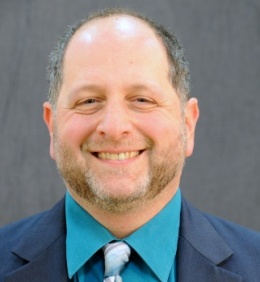My social media news feed contained two stories this week that were sad in different ways. In the first story, a woman had her kids taken away by the Division of Children and Family Services (DCFS) because when the toddler was screaming about being in time-out, someone overheard the screams and reported abuse. She eventually got her children back, but not for several months, during which her newborn almost died from mistreatment. There was never any evidence of abuse or neglect by the children’s parents.
In the second story, a 12-year-old girl committed suicide because of relentless bullying at school. The parents had asked the school administrators for months to do something, but their requests were ignored, and they claim that in meetings, school officials tried to change the subject to academic performance, dismissing their concerns. The parents of the bullying kids similarly wrote it all off as a “big joke.”
Is our society plagued by excessive meddlesomeness, or by excessive callousness?
I saw both of these stories within 24 hours, and my initial reaction, after the sadness, was confusion, because they seem to involve totally opposite problems. The first case represents the hypervigilance of micromanaging busybodies. The second case represents callous indifference. A toddler screaming about time-out prompts a neighbor to summon the authorities, but months of relentless bullying are laughed off by neighbors and ignored by the authorities.
Unfortunately, one can easily find dozens of cases similar to both. How could such stories come from the same society? Is our society plagued by excessive meddlesomeness, or by excessive callousness? How could it be both?
Actually, there is an explanation: the state.
In both stories, the responsibility lies with arrogant state bureaucrats who think they know better than anyone else and whose main objective is not serving others but making themselves liability-proof. The state functionaries with these responsibilities have incentives that favor a particular set of actions.
There’s an element of Frederic Bastiat’s “seen versus unseen” at work here. Risks and consequences that are seen are much more motivating than those that are unseen.
The responsibility lies with arrogant state bureaucrats who think they know better than anyone else.
If the DCFS agents don’t take away a kid who really is being abused, that looks worse for them, and will cost someone his or her job. But in a case like this, they can say, “Hey, no harm done, your kids are back at home now, we were just doing our job,” and no one is likely to be fired over it.
Likewise, if the school administrator suspends a kid for bullying, he or she faces irate parents and bad press for “coddling the snowflakes” who will never learn to “toughen up,” whereas if they ignore the bullying, the bullied kid will suffer but eventually graduate, and they only get bad press if someone dies.
Combine these incentive sets with the general attitude that parents don’t know what they’re doing and the “professionals” know better, and we have a toxic combination.
Another thing tying these two cases together is that the school district assumed there was no real problem and was satisfied with its (self-reported) good score on antibullying metrics. In the infant case, the assumption of bureaucratic correctness is greatly amplified, as the police and courts defaulted to accepting the DCFS agents’ word.
How can we change bureaucrats’ incentives?
We know people have different incentives when they face competition (as in running a business) rather than having a captive audience (as in providing a government service). But short of full privatization of all government functions, the more pressing question is how to change the incentives these bureaucrats face.
One solution would be to end the presumption that the state is always right by holding state actors personally liable for their misdeeds. The current doctrine of qualified immunity makes it very difficult to hold people accountable, which is bad enough, but also is predicated on the default assumption that state-appointed experts know best, and have a right to broad leeway in acting — after all, they are performing state functions, which are presumptively good.
Another solution might for all state agencies to have a civilian complaint review board or the like, as some local police departments do. The root of this idea is sound: a level of oversight which is outside the agency entirely and thus not committed to the same incentives. Asking government bureaucracies to police themselves is fraught with conflict of interest problems, whereas oversight from something completely separate might be a more effective check.
These options are probably not as good as real competition, but they would be better than nothing.



